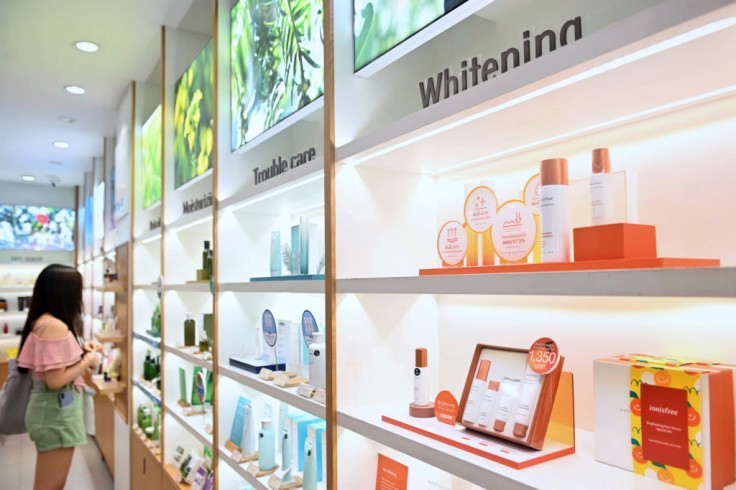
The British Association of Dermatologists has acknowledged this trend, pointing to a 19% increase in skincare spending among teenagers, according to a Piper Sandler survey.
This fixation on beauty routines marks a stark departure from the simpler childhood practices of previous generations, with the 'glass skin' ideal from the Korean beauty trend exerting significant influence.
Potential Dangers of Early Skincare Practices
These skincare habits, once reserved for older age groups, have infiltrated the routines of the young, prompting concerns about potential skin irritation, increased sensitivity to the sun, and long-term damage.
The use of products containing retinoids, AHAs, and BHAs, typically designed for adult skin issues, could pose significant risks when used prematurely.
The beauty industry's aggressive promotion of anti-aging products, including brands like Dior introducing skincare lines for babies, intensifies these concerns.
This trend extends beyond skincare, sparking a broader conversation about societal values and the pressures children face to maintain a youthful appearance.
It raises ethical questions about a generation growing up preoccupied with staving off the natural signs of aging, potentially compromising their childhood.
Mental Health Issues and Social Media Influence
An eight-year-old named Sadie, inspired by TikTok skincare videos, was attracted to products from companies like Bubble and Drunk Elephant due to their appealing features and packaging.
Drunk Elephant, in particular, has become popular among both adult and child influencers, but some of its products contain exfoliators and retinol.
Skincare content on social media is unrestricted, and daily routine videos garner millions of views.
With the 'Sephora kids' trend gaining traction on TikTok, where young individuals are observed flocking to beauty retailer Sephora to purchase anti-aging products, the role of social media in shaping this trend cannot be overstated.
Renowned American psychiatrist Dr. Daniel Bober warns about the harmful effects of such trends on younger generations, including potential long-term damage to their skin and mental health.
He emphasizes the beauty industry's exploitation of insecurities and social media's role in magnifying the focus on appearance among the youth.
Parents Concern on Skincare Trends Among Children
Concerns have been raised by parents who observe their children's growing interest in skincare , influenced by social media and peers.
Some content creators have documented children using harmful products, while others report instances of children abusing in-store testers at beauty stores.
Drunk Elephant's founder, Tiffany Masterson, has had to caution children to stay away from potent products containing acids and retinols, emphasizing that young skin does not require these ingredients.
Despite the global fascination with the brand, there are reports of children experiencing skin issues after using the products.
Parents, like Lucy, find it challenging to educate their children about appropriate skin care practices when influencers hold more sway.
Pediatric dermatologist Dr. Tess McPherson emphasizes the importance of providing accurate information to children about skincare.
She expresses concerns about anti-aging products being marketed to children, which may cause irritation and other problems, especially for those with sensitive skin or eczema.
Dr. McPherson also points out the allure of suggestive packaging, designed to attract children.
She advises parents to consult with doctors or dermatologists for effective treatments instead of spending money on expensive products.
There are currently no age restrictions on purchasing these skincare items in shops or online.
Retailers, such as Boots, are implementing additional training for their in-store beauty specialists to provide specific information for younger customers and their parents.
Ss the trend of children adopting anti-aging skincare routines continues to escalate, it is crucial for society, parents, and the industry to reevaluate the values we impart on our children. The potential consequences for their physical and mental well-being can no longer be disregarded.
Related Article: Cosmetics: When Should You Allow Your Child to Use Makeup?